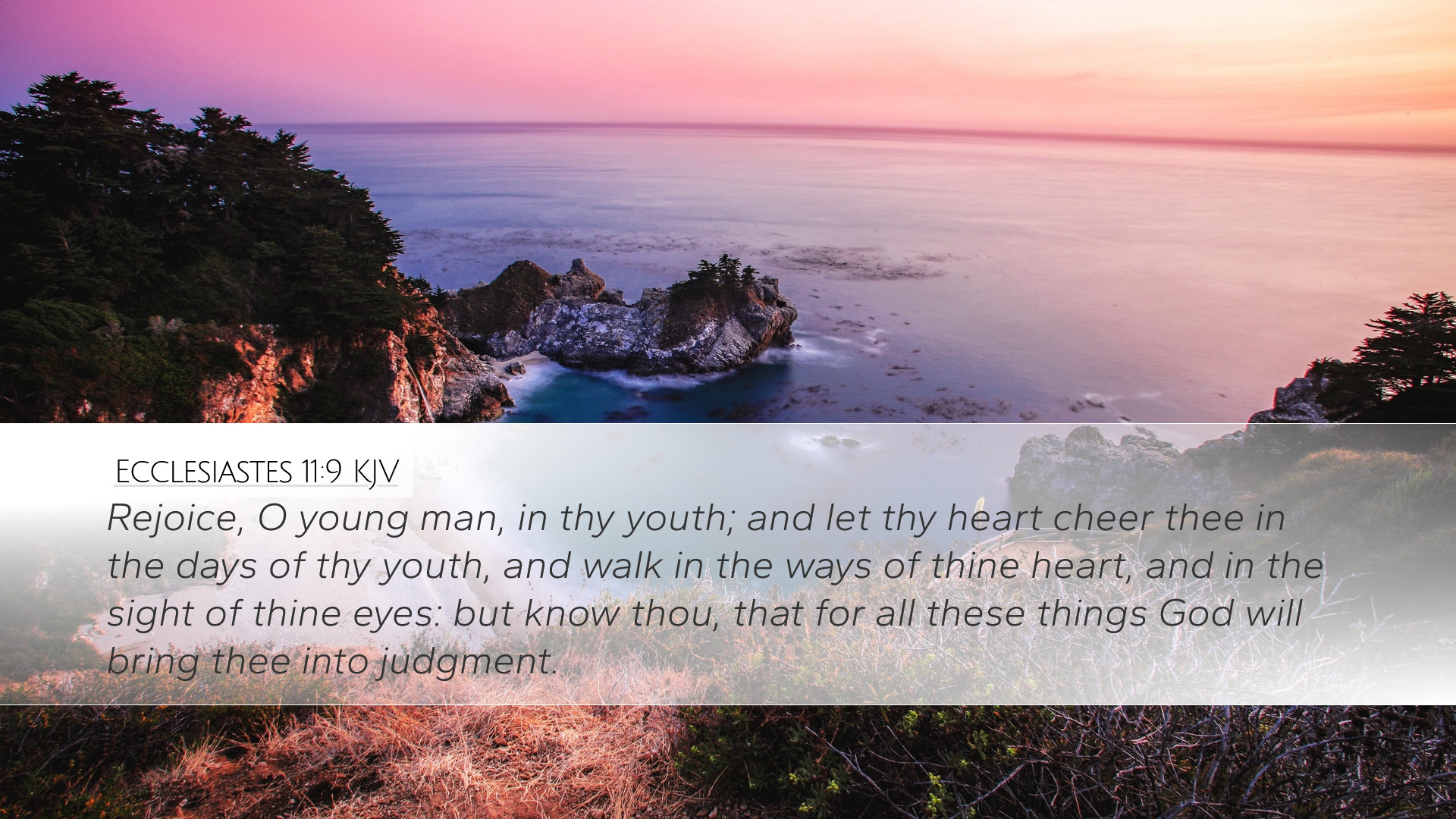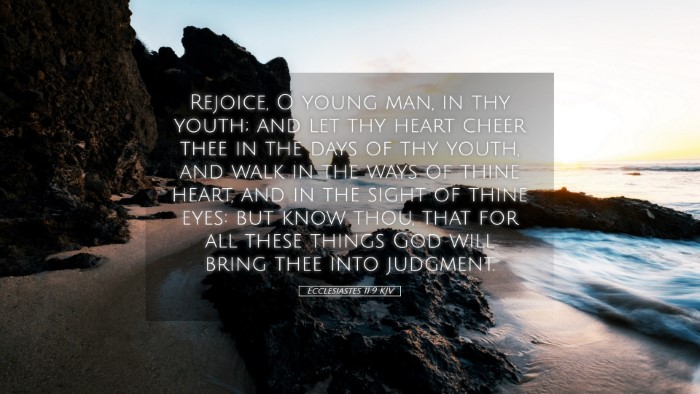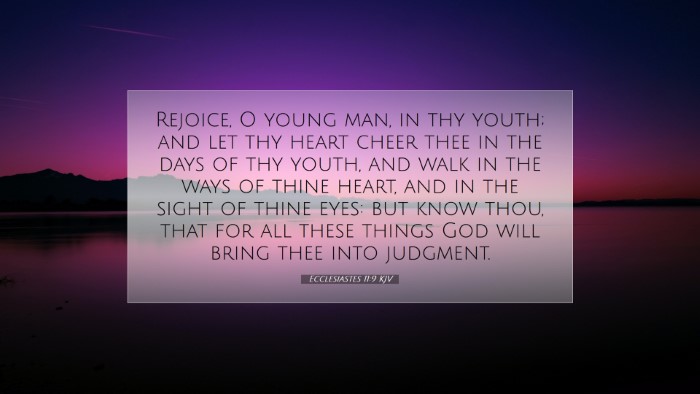Old Testament
Genesis Exodus Leviticus Numbers Deuteronomy Joshua Judges Ruth 1 Samuel 2 Samuel 1 Kings 2 Kings 1 Chronicles 2 Chronicles Ezra Nehemiah Esther Job Psalms Proverbs Ecclesiastes Song of Solomon Isaiah Jeremiah Lamentations Ezekiel Daniel Hosea Joel Amos Obadiah Jonah Micah Nahum Habakkuk Zephaniah Haggai Zechariah MalachiEcclesiastes 11:9
Ecclesiastes 11:9 KJV
Rejoice, O young man, in thy youth; and let thy heart cheer thee in the days of thy youth, and walk in the ways of thine heart, and in the sight of thine eyes: but know thou, that for all these things God will bring thee into judgment.
Ecclesiastes 11:9 Bible Commentary
Ecclesiastes 11:9 Commentary
Verse: "Rejoice, O young man, in thy youth; and let thy heart cheer thee in the days of thy youth, and walk in the ways of thy heart, and in the sight of thine eyes: but know thou, that for all these things God will bring thee into judgment."
Introduction
The book of Ecclesiastes, traditionally attributed to Solomon, presents profound reflections on the meaning of life, the nature of human existence, and the ultimate purpose behind our pursuits. Ecclesiastes 11:9 serves as a critical reminder to the youth about joy and responsibility, inviting them to enjoy their lives while providing a sobering reminder of divine accountability.
Exegesis
This verse can be divided into two profound imperatives: the call to rejoice in youth and the caution regarding the judgment that follows human actions.
Rejoicing in Youth
Emphasis on Joy: The first part of the verse encourages the young to rejoice and let their hearts cheer them. Matthew Henry emphasizes that youth is a season of vitality, passion, and exploration. The youth are in a unique time where they can harness their energies and make decisions that shape their futures.
Freedom to Explore: Albert Barnes notes that this period should not be squandered but embraced fully. The encouragement to "walk in the ways of thy heart" encourages youth to pursue their passions and dreams. This resonates with the biblical teaching that we should live life to the fullest, enjoying the gifts and opportunities God has provided.
Walking in the Ways of Your Heart
Adam Clarke provides insight on personal agency in this context, suggesting that young people should seek what they desire, but always with an understanding of moral and ethical frameworks. The freedom granted here isn't a license for recklessness but rather an invitation to live authentically and purposefully.
The Reality of Judgment
The verse abruptly shifts tone with the reminder that, despite the encouragement to enjoy life, God will hold individuals accountable for their actions. This paradoxically highlights the balance between joy and responsibility.
Accountability Before God
Divine Judgment: Henry’s commentary articulates that this judgment is not merely punitive but serves as a corrective measure aimed at promoting righteousness and wisdom. It functions as a sober reminder that life choices matter and that God observes and evaluates our conduct.
Moral Considerations: Barnes reflects that while one should partake in joy, it should not lead to indulgence in sin. Recklessness in youth, motivated by pleasure alone, can lead to destructive paths. Therefore, balancing enjoyment with ethical decision-making is essential.
Reflection
This verse reflects a broader theological truth present throughout Scripture: the importance of living in a way that acknowledges God’s authority and judgment while embracing the joy that comes from His blessings. The dual aspects serve as a guide for young individuals navigating life choices.
Practical Applications
- Encouragement of Youth: Pastors and leaders should inspire young people to pursue their dreams and passions, reminding them of the unique gifts God has placed within them.
- Teaching Responsibility: Young individuals should also be taught about accountability, aimed at fostering an understanding that their choices carry weight and consequences.
- Balance in Life: The essence of this verse embodies the need for balance—pursuing joy while remaining aware of one’s moral compass and the implications of one’s lifestyle.
Conclusion
Ecclesiastes 11:9 invites the young to embrace their youth with vigor and joy while simultaneously urging them to understand their actions are subject to divine scrutiny. The harmonic relationship between celebrating youth and acknowledging accountability offers a rich vein of wisdom for modern readers, emphasizing that life's fulfillment does not exist in the absence of responsibility.


